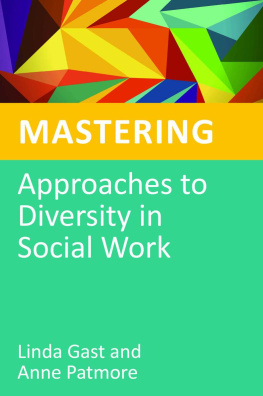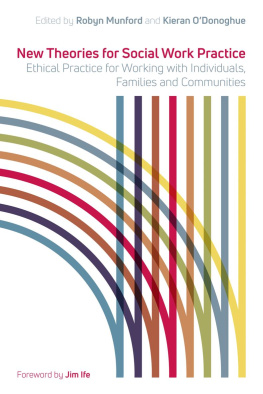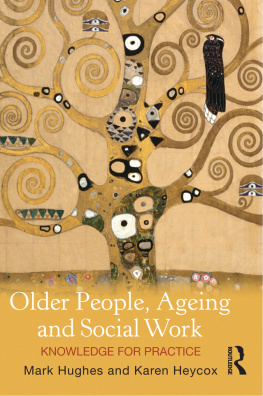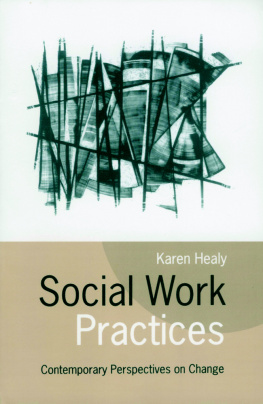Mastering Approaches to Diversity in Social Work
Mastering Social Work Skills series
Edited by Jane Wonnacott
This series of short, accessible books focuses on the everyday key skills that social workers need in order to practise effectively and ensure the best possible outcomes for service users. Easy to read and practical, the books feature key learning points, practice examples based on real-life situations, and exercises for the reader to enhance their learning. The books in this series are essential reading for post-qualifying social work students and social work practitioners.
Jane Wonnacott is Director of In-Trac Training and Consultancy, UK.
other books in the series
Mastering Social Work Supervision
Jane Wonnacott
ISBN 978 1 84905 774 1
MASTERING
Approaches to Diversity in
Social Work
Linda Gast and Anne Patmore
Jessica Kingsley Publishers
London and Philadelphia
has been reproduced with the consent of Conroy Grizzle.
reproduced with permission from Hofstede.
from Morrison 2001.
First published in 2012
by Jessica Kingsley Publishers
116 Pentonville Road
London N1 9JB, UK
and
400 Market Street, Suite 400
Philadelphia, PA 19106, USA
www.jkp.com
Copyright Linda Gast and Anne Patmore 2012
Series editors foreword copyright Jane Wonnacott 2012
All rights reserved. No part of this publication may be reproduced in any material form (including photocopying or storing it in any medium by electronic means and whether or not transiently or incidentally to some other use of this publication) without the written permission of the copyright owner except in accordance with the provisions of the Copyright, Designs and Patents Act 1988 or under the terms of a licence issued by the Copyright Licensing Agency Ltd, Saffron House, 610 Kirby Street, London EC1N 8TS. Applications for the copyright owners written permission to reproduce any part of this publication should be addressed to the publisher.
Warning: The doing of an unauthorised act in relation to a copyright work may result in both a civil claim for damages and criminal prosecution.
Library of Congress Cataloging in Publication Data
Gast, Linda Eileen, 1954-
Mastering approaches to diversity in social work / Linda Gast and Anne Patmore ; foreword by Jane Wonnacott.
p. cm. -- (Mastering social work skills)
Includes bibliographical references and index.
ISBN 978-1-84905-224-5 (alk. paper)
1. Social service. 2. Diversity in the workplace. 3. Social service and race relations. I. Patmore, Anne, 1953- II. Title.
HV40.G38 2012
361.30683--dc23
2011032356
British Library Cataloguing in Publication Data
A CIP catalogue record for this book is available from the British Library
ISBN 978 1 84905 224 5
eISBN 978 0 85700 458 1
Printed and bound in Great Britain
Contents
Figures and Tables
Series Editor Foreword
Working effectively with diversity is at the heart of all social work practice. However, too often social workers hear the phrase and become de-skilled fearful of making mistakes and concerned that they may be failing to adequately address all aspects of a persons identity. This book recognises the complexity of the task but aims to make working with diversity ordinary and equip social workers with a number of useful tools to help them work together with service users to provide help to meet need across all dimensions of the service users life. Along with all other books in this series, it is a practical text using material that has been delivered to many social workers attending training courses over a number of years. It challenges readers to think broadly about the topic, consider their own practice and develop new ways of thinking and working.
PREFACE
If you talk to a man in a language he understands, that goes to his head.
If you talk to him in his language that goes to his heart.
Nelson Mandela
This book is about the complexity of the world in which social workers operate. It explores some of the dimensions of otherness; how people can be so different to ourselves that we find it difficult to understand the rationale for their behaviours. Having models to make sense of these differences means that they become understandable and cannot be attributed to personality conflicts or because they come from a different culture. Although aimed at practitioners, supervisors, practice teachers and assessors will also find this book helpful by using the models to explore interactions between workers and service users, and to encourage practitioners to reflect on how their culture impacts on others. Good practice that pays attention to diversity is good practice per se, as most service users wish to be identified as unique human beings and worked with according to their own individual experiences.
The book could not have been written without the encouragement of many colleagues, including the late Dr Tony Morrison for his inspirational leadership, colleagues at In-Trac for their critically supportive commentaries and Alison Bishop for her technical wizardry, Phil Taylor for the introduction of the Jungian approach and MyersBriggs Type Indicators into mainstream social work practice, and Conroy Grizzle, for the development of his model for understanding racism. We also wish to thank the many practitioners who have been trained using these models and have contributed to their development and refinement, and the students and practitioners we have worked with over the years who have informed our thinking. Lastly, our thanks to Mike and Peter, our respective partners, without whose unfailing support this book would not have been possible.
CHAPTER 1
Diversity in the Context of Current Social Work Practice
Key messages
Diversity is a broad subject, related to equal opportunities, anti-oppressive practice and anti-discriminatory practice.
Social workers need to understand their own prejudices, biases, stereotypes and opinions and how these may impact on practice.
In order to work effectively with the diverse range of service users, any discrimination and oppression which they may have experienced needs to be acknowledged.
Power impacts on how people experience the world, so is a crucial component of any social work relationship.
Introduction
Diversity is an important yet difficult area to talk and write about. It raises strong emotions in many people precisely because it touches on all of our lives and has personal resonances. Whatever we write as authors has the potential to be biased because of our genders, our racial backgrounds, our age, our abilities, our education and our perspectives. However, as well as the more obvious areas in which people have experienced discrimination, we have chosen to cover some broader differences, to extend thinking about difference. When the National Minimum Standards for Adoption (DfE 2011) were published, Standard 2, expressed as Promoting a positive identity, potential and valuing diversity, elicited anxiety that this would dilute the focus on areas traditionally associated with oppression or discrimination, yet it seems to offer a much more holistic and comprehensive appreciation of the complexity of individuals.
This book seeks to explore racial, cultural and personal diversity from a number of different perspectives using a range of models, some of which are very familiar to the social care professions but some of which are not. It will explore personal biases which affect the way in which we perceive others and some of the values by which we make judgements about individual, family, group and community differences. It will then offer models for understanding diversity which, with practice, can positively influence the quality of interactions with service users. We intend for this book to be an opportunity to explore the big picture of diversity and to provide the reader with the knowledge and awareness needed to practice social work responsibly and effectively. Working from the starting point that diversity is all the ways in which we differ (the approach taken by the authors) and everybody is like all other people, like some other people, and like no other person (a concept explored by Kluckhohn and Murray 1948), diversity focuses particularly on the middle phrase how we are like others and how we differ.









